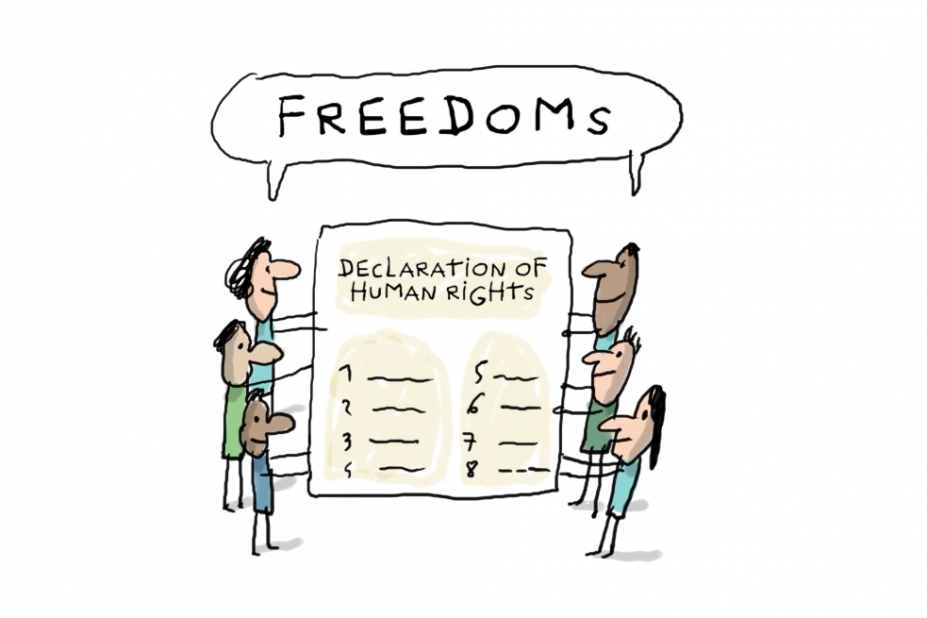What is the Universal Declaration of Human Rights?
It is an international document that states the basic rights and fundamental freedoms to which all human beings are entitled.
It was adopted in 1948 by the UN, the United Nations organization, just after the Second World War.
Traumatized by the horrors of war, the countries of the world wanted to put down on paper basic human rights.
The declaration of 1948 is inspired from former texts from several countries. For example, the 1789 French Declaration of human and citizens’ rights.
It comprises 30 articles defining the rights of all humans.
The first: “All human beings are born equal in dignity and rights.”
The Declaration protects human beings from injustice, and also slavery and torture.





 Retour
Retour